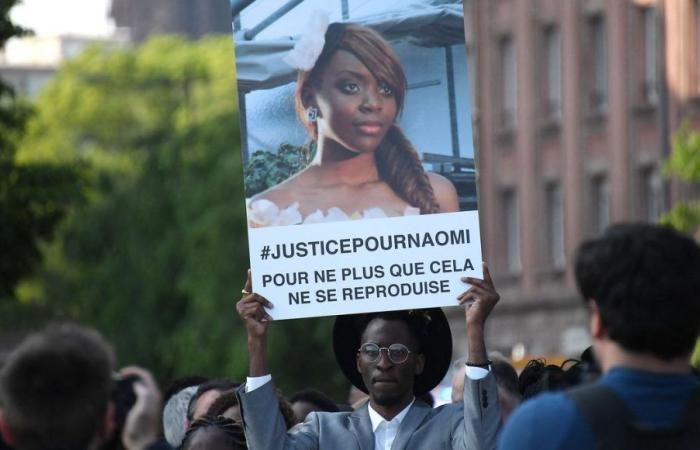
The Strasbourg emergency services operator who mocked Naomi Musenga on the phone in December 2017 is appearing in court this Thursday, July 4 before the criminal court for “failure to assist a person in danger. Corinne M., operator today, aged 60, had not taken Naomi’s calls seriously. She had not passed on the young woman’s call to the regulating doctor even though she was complaining of abdominal pain and bleeding. Naomi, 22, died a few hours later in Strasbourg hospital. France Bleu takes stock of what you need to know about the case before the trial.
“Help me, I’m going to die…”
Naomi Musenga’s weak voice still makes us shudder more than six and a half years after the events. She made this call to the emergency services on December 29, 2017. Corinne M., the operator who had her on the line, did not think it was a good idea to transfer her call to the regulating doctor. In an annoyed tone, she had even replied:Everyone has to die someday“while the 22-year-old woman, visibly in distress, asked him for help. Naomi would die a few hours later in hospital.
loading
After a first call at 11:28it was a friend who made a second call, an hour later. She described her symptoms: heavy bleeding, severe diarrhea. Both times, it was Corinne M., the emergency medical service operator, who told her to call SOS Médecins despite the severity of the symptoms. Ten minutes later, SOS Médecins arrived on the scene and called for help, which arrived quickly. Shortly before 2 p.m., when the emergency medical service arrived, young Naomi fell into a coma and went into cardiac arrest. She died around 5:30 p.m., despite attempts at resuscitation.
Operator’s negligence
The investigation showed that the operator had not followed the procedure. She should have asked more questions about the young woman’s condition. She did not look for serious signs, and did not forward the call to the regulating doctor. Worse still, during the second call, she did not even take the identity or address of the person calling her, while Naomi’s friend spoke of vaginal bleeding and profuse diarrhea.
What was most striking at the time was the operator’s lack of empathy. Even though during her hearing, she acknowledged that this sentence was “stupid“, she denies having shown contempt. She defends herself by stating in particular that “all patients speak in a weak voice“.
Quick care wouldn’t have saved Naomi
The IGAS (General Inspectorate of Social Affairs) report concluded in June 2018 that Naomi M had not received care that complied with best practices. It highlighted dysfunctions, namely that the Samu 67 regulation procedure was not compliant to the instructions. He estimated that the operator’s decision had delayed the patient’s care by two hours and twenty minutes. The head of Samu 67, implicated by the Igas report, had also resigned following this affair.
Regarding the causes of Naomi Musenga’s death, experts initially suggested an overdose of paracetamol. The latest expert report concluded that Death was due to abdominal shock. While the experts’ conclusions differ on the causes of the young woman’s death, they are unanimous in saying that at the time of the call, her condition was beyond any therapeutic resource. In short, Even immediate care would not have saved Naomi. This is why the operator is not charged with involuntary manslaughter.
A family that wants answers
For Naomi’s loved ones, This trial is experienced as a relief after more than six years of investigation, even if there remains the frustration of seeing only one person prosecuted in this case. Louange, Naomi’s sister, believes that “There are people responsible at several levels. We regret that certain responsibilities have not been identified.”
What the family would like is an apology from the operator. They haven’t heard one so far, says Naomi’s sister Louange: “We have been looking for an answer since the beginning as to whether this person was aware of the seriousness of the situation, and in his conscience, does he regret it? Does he want to apologize? I don’t know what happened in his head, but he should recognize his wrongdoing.”
Naomi’s father will not be at the trial. He died in 2022, before the investigation was even completed and the operator was indicted.
Olivier Vogel
Emergency regulation system called into question
For Marc Noizet, the president of Samu-Urgences de France, “An entire profession has been struck down by this affair.“, he explained last May on France Info.
Since this tragedy, the Samu has set up a mandatory one-year certified training course for Samu operators. The High Authority of Health has set up guides to improve the quality and safety of care within the Samu. Finally, the Samu are now inspected every four years by the High Authority of Health.





